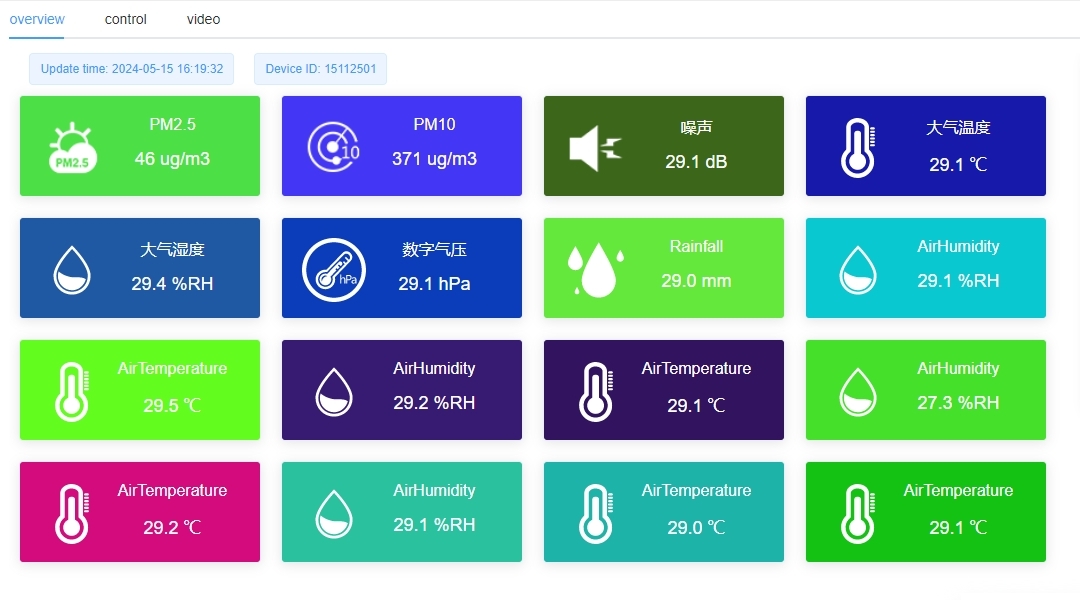

— Blogs —
—Products—
 Consumer hotline +8618073152920
Consumer hotline +8618073152920 WhatsApp:+8615367865107
Address:Room 102, District D, Houhu Industrial Park, Yuelu District, Changsha City, Hunan Province, China
Product knowledge
Time:2024-05-26 10:14:36 Popularity:551
The role of meteorological data for tourism planning and its impact on the tourism industry can be expressed and summarised in points as follows:
Scenic area planning and tourism resource development:

Meteorological data provide information on the climatic characteristics and natural resources of various regions, which help tourism practitioners to better plan scenic spots and develop tourism resources. For example, through meteorological data analysis, it is possible to determine which areas are suitable for the establishment of ski resorts or seaside resorts.
Meteorological data can also be used to assess the sustainability and vulnerability of tourism resources, so as to formulate more rational resource utilisation and conservation strategies.
Tourism activity scheduling:
Meteorological data can predict the weather conditions in the coming period of time, helping tourism practitioners to rationally arrange tourism activities such as outdoor adventure, hiking and photography. Avoiding tourism activities under bad weather conditions ensures the safety and comfort of tourists.
Tourism Risk Assessment:
Meteorological data can be used to assess the risk of natural disasters in tourism destinations, such as typhoons, heavy rains and floods. Through meteorological warning systems, tourism operators can take countermeasures in advance to reduce the safety risks for tourists.
Other aspects of meteorological data for the tourism industry:
1. Tourism safety: meteorological data is crucial to ensure tourism safety. Through real-time monitoring and early warning of severe weather, meteorological data can help tourism practitioners take measures in advance to protect the personal safety of tourists.
2. Tourism decision-making: meteorological data can provide a scientific basis for tourism decision-making. For example, hotels can adjust room prices and catering services according to weather conditions to meet market demand. Tourism companies can also adjust travel routes and itineraries according to weather data to provide a better travel experience.
Climate comfort is one of the important factors affecting the attractiveness of tourism destinations. A warm and comfortable climate can attract more tourists to visit and enhance the popularity and competitiveness of tourism destinations.
Weather conditions have an important impact on the diversity and richness of tourism activities. Different weather conditions can breed different natural landscapes and tourism environments, such as sea of clouds, smoky rain, freezing fog and other meteorological wonders, which often become the core attraction for tourism photography, camping, cycling and other activities.
Tourism safety and risk management:
Meteorological data is crucial for tourism safety and risk management. Timely meteorological warnings and monitoring can help tourism operators develop countermeasures to reduce safety risks for tourists. For example, before a typhoon or heavy rainfall, tourism operators can close scenic spots and evacuate tourists in advance to avoid casualties and property damage.
Promoting sustainable development of tourism:
Meteorological data also play an important role in promoting the sustainable development of tourism. By monitoring and analysing meteorological data, the impact of tourism activities on the local ecological environment can be assessed, and more reasonable tourism development strategies can be formulated to protect the local ecological environment and cultural heritage.
1. Tourism resource allocation: meteorological data can help tourism planners understand the demand of tourists and the distribution of tourism resources in different seasons and locations. This helps to allocate tourism resources more rationally and improve the efficiency of resource utilisation.
2. Arrangement of tourism activities: In addition to the basic prediction of weather conditions, meteorological data can also provide more detailed information on wind direction, wind speed, humidity, barometric pressure and so on. This information is crucial for arranging specific tourist activities (e.g., gliding, parachuting, diving, etc.).
3. Tourism marketing: Meteorological data can also be used for tourism marketing. For example, during the sunny season, travel companies can launch outdoor tourism products and activities to attract tourists to experience them. At the same time, weather data can also be used to analyse tourists' travel preferences and behavioural patterns, providing data support for tourism marketing.

Disadvantages of meteorological data for tourism planning:
1. Data limitation: meteorological data may not be able to cover all tourism-related meteorological conditions, such as microclimates and local microclimates in specific locations. This may lead to less accurate decisions in tourism planning.
2. Prediction accuracy: Despite the continuous progress in meteorological prediction techniques, prediction errors still exist. Inaccurate forecasts may lead to unreasonable adjustments in tourism planning, affecting tourists' experience and the use of tourism resources.
3. Difficulty in interpreting data: Meteorological data are usually complex and require professional meteorological knowledge and experience to interpret accurately. If tourism planners lack such knowledge and skills, they may not be able to make full use of meteorological data for planning.

In summary, meteorological data play an important role in tourism planning and the tourism industry. By making full use of meteorological data, scenic spots and tourism resources can be planned more scientifically, tourism activities can be arranged rationally, tourism risks can be reduced, and the attractiveness and competitiveness of tourism destinations can be enhanced, thus promoting the sustainable development of tourism. Despite some shortcomings and challenges, the sustainable development of the tourism industry can be strongly supported through the rational use and interpretation of meteorological data.
Prev:Forest fire weather stations
Next:The crucial role of meteorological station data in multiple fields
Related recommendations
Sensors & Weather Stations Catalog
Agriculture Sensors and Weather Stations Catalog-NiuBoL.pdf
Weather Stations Catalog-NiuBoL.pdf
Related products
 Combined air temperature and relative humidity sensor
Combined air temperature and relative humidity sensor Soil Moisture Temperature sensor for irrigation
Soil Moisture Temperature sensor for irrigation Soil pH sensor RS485 soil Testing instrument soil ph meter for agriculture
Soil pH sensor RS485 soil Testing instrument soil ph meter for agriculture Wind Speed sensor Output Modbus/RS485/Analog/0-5V/4-20mA
Wind Speed sensor Output Modbus/RS485/Analog/0-5V/4-20mA Tipping bucket rain gauge for weather monitoring auto rainfall sensor RS485/Outdoor/stainless steel
Tipping bucket rain gauge for weather monitoring auto rainfall sensor RS485/Outdoor/stainless steel Pyranometer Solar Radiation Sensor 4-20mA/RS485
Pyranometer Solar Radiation Sensor 4-20mA/RS485
Screenshot, WhatsApp to identify the QR code
WhatsApp number:+8615367865107
(Click on WhatsApp to copy and add friends)